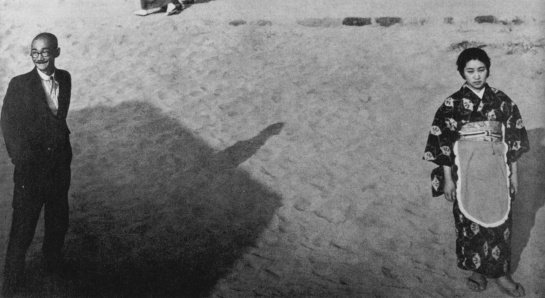This blog presents a collection of images and texts we have collected during our artistic research over the past 5 years. It focusses on alternative ways of representing space within the realm of photography and painting. With this blog we aim to analyse how these representations can affect our gaze on a fundamental level and change the way we relate to the world. This first post gives a brief summary of topics of interest we will disclose in more detail in the following posts.
Bon’yari shite
Since the ‘discovery’ of perspective in the early 15th century our understanding of space is guided by optical laws. The invention of photography and the extensive use of photographic images nowadays, constantly re-affirm these laws. This visual knowledge we’ve inherited and we’re imbued with determines how we – in the West – perceive and represent space: as homogeneous, unified and absolute. Our world is conveniently ordered by this optical system but it is as if we only look with our “visual memory” and think of what we see as being true. In the last sentences of his famous book Camera Lucida, Roland Barthes hints to these limitations of our gaze when he says:
[1] Roland Barthes, Camera Lucida, Reflections on Photography, Hill and Wang, New York, 1981, p. 118.
“One of the marks of our world is perhaps this reversal: we live according to a generalized image-repertoire. Such a reversal (…) de-realizes the human world of conflicts and desires, under the cover of illustrating it.” [1]
